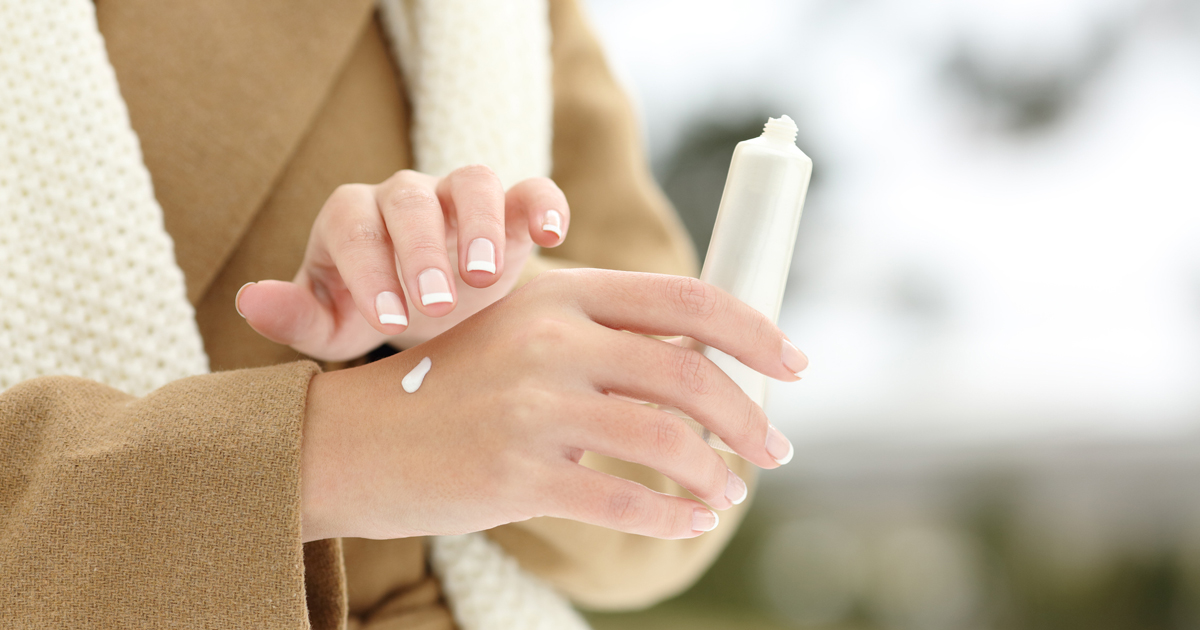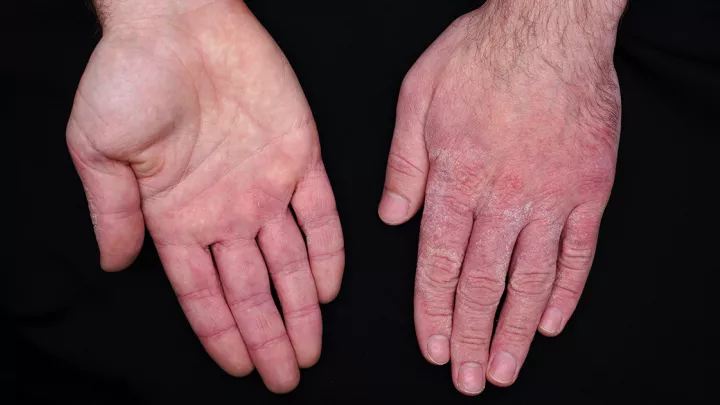3 products to protect your hands this winter

Hand washing and sanitizing is great for protecting against COVID-19 but can leave your skin lacking hydration. Dermatologist Ronald Sulewski, MD, gives practical advice on keeping your hands protected while living with the cold, dry air of winter.
"Just like other doctors, I'm washing my hands over 50 times a day," says Dr. Sulewski. "You have to stay on top of regular moisturizing to maintain your skin's health." Find out how to do just that with these three types of products to keep your hands healthy.
1. Heavy creams for daily moisture
Cerave, Cetaphil and Eurecin are all excellent choices because they don't have fragrances, and they're also thicker than most lotions. "The average type of hand lotion that people use is just not strong enough for our winters, especially with the increase in handwashing in this season," says Dr. Sulewski. "In the dry winter air, use a thick moisturizing cream at least twice a day." The best time is right out of the shower when your hands are still damp.
2. Goopy ointments for an overnight boost
Aquaphor Healing Ointment and Vaseline Jelly are both great for locking in moisture while you sleep. "Aquaphor or Vaseline can get in the way if you use it during the day, but they're excellent for overnight treatments," says Dr. Sulewski. After you apply a thick layer of these goopy ointments, put on cotton or vinyl gloves to help it soak in. Remove the gloves in the morning and marvel at how much difference an overnight treatment can make.
3. Super glue for painful cracks
Super glue's humble beginnings include saving lives on the battlefield. In wartime, soldiers could bleed to death before getting medical treatment. They used super glue to seal up wounds on the battlefield without letting infectious agents in.
"If you get painful cracks in your hands, you can put super glue on them. It acts like a second skin and helps the crack heal," says Dr. Sulewski. Use just a little bit of super glue in the cracked skin. It will wear off eventually after the cut has healed.
If your hands are still in rough shape after using these types of products, you may need prescription-strength medicine. A dermatologist can evaluate your skin and let you know the best course of action. Find a dermatology clinic near you to make an appointment.







